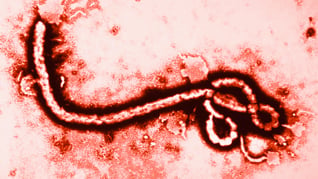Updated at 8:39 a.m. Oct. 15 to include more information.
Physicians and hospitals should be prepared to care for Ebola patients, Centers for Disease Control and Prevention (CDC) Director Tom Frieden, MD, said Tuesday. His comments came after a Dallas nurse who had cared for the first Ebola patient in the United States was diagnosed with the virus.
The nurse contracted Ebola despite wearing personal protective equipment. On Wednesday, the CDC announced a second health care worker at the Dallas hospital that treated the initial patient had also tested positive for Ebola.
“I’ve been hearing loud and clear from health care workers from around the country that they’re worried, that they don’t feel prepared to take care of a patient with Ebola,” Dr. Frieden said. “Every hospital in the country needs to be ready to diagnose Ebola. … Anyone who cares for someone with a fever or signs of infection needs to ask, ‘Where have you been in the past month?’”
Dr. Frieden said the CDC will ramp up webinars, conference calls and other outreach to U.S. health care workers to ensure physicians and hospital staff are prepared.
The CDC is establishing an Ebola response team that will be dispatched to any hospital in the country that has a confirmed case of Ebola. The team will include experts in infection control, laboratory science, personal protective equipment and management of Ebola units.
“We will put a team on the ground within hours,” Dr. Frieden said.
He also said that health care workers should seek care immediately if they feel even a slight sore throat or headache. “We would much rather see a false alarm than someone who lets their illness go on for a day and potentially get sicker and expose it to others,” he said.
The CDC offers a special Web page with resources for physicians to prepare for patients who might have the disease. The CDC and U.S. Department of Health and Human Services’ Office of the Assistant Secretary for Preparedness and Response have asked physicians to place screening criteria in all emergency departments, ambulances and other “first contact” locations. Read more about how to screen for Ebola at AMA Wire®.
“What we are dealing with is a disease that’s unfamiliar in the United States,” Dr. Frieden said. “Caring for Ebola can be done safely—but it’s hard. We want to make sure the protocol we have and the support we have for health care workers is there on the ground so we can assist.”




